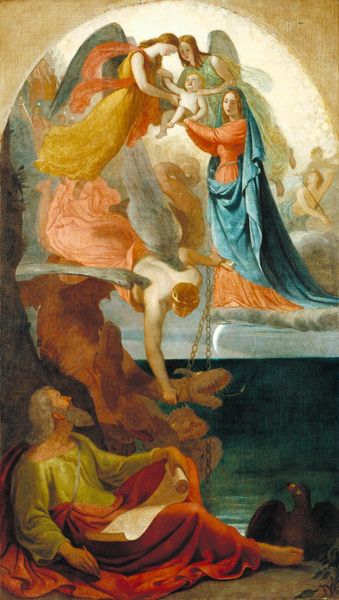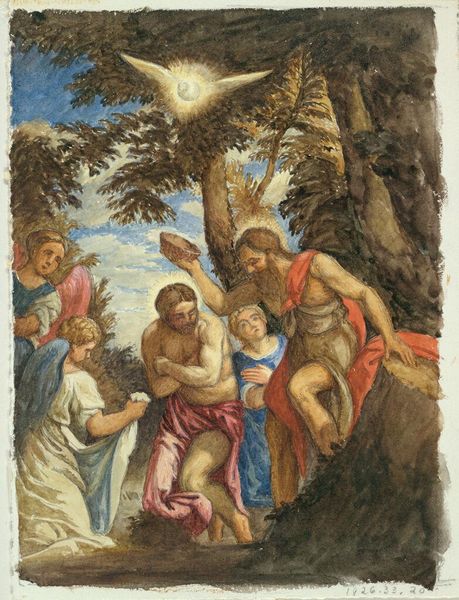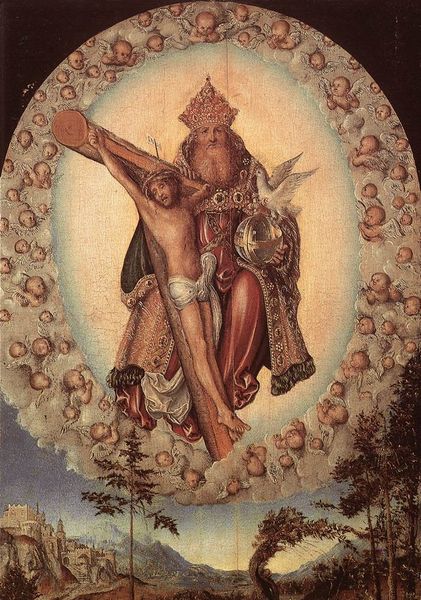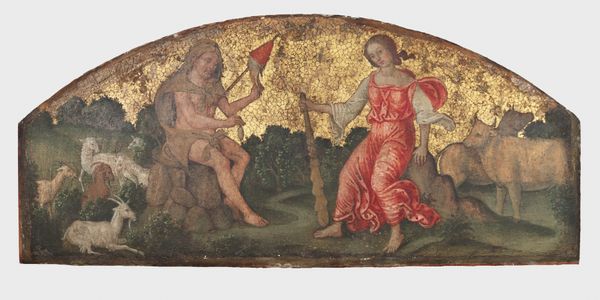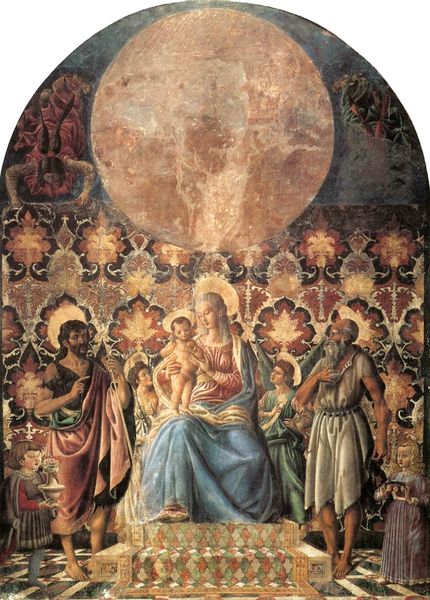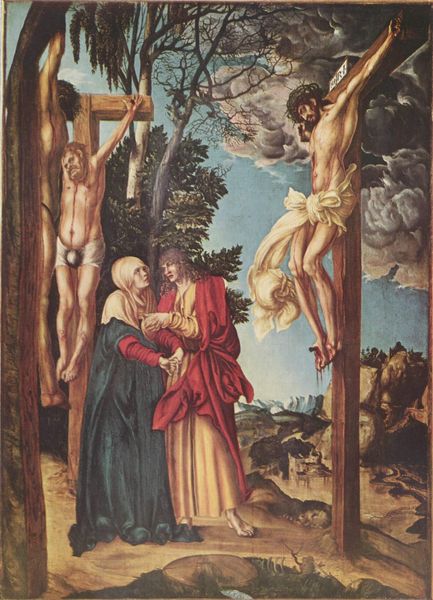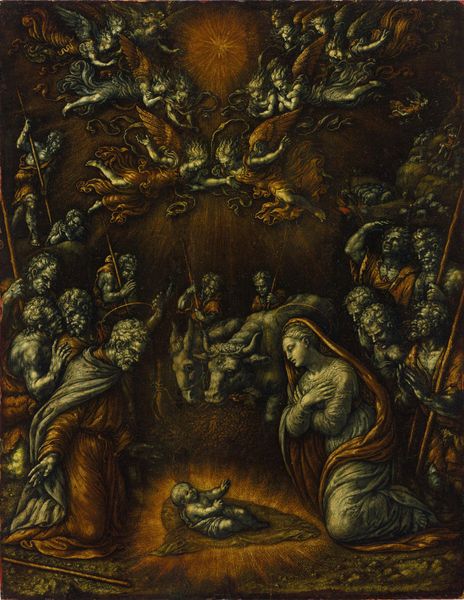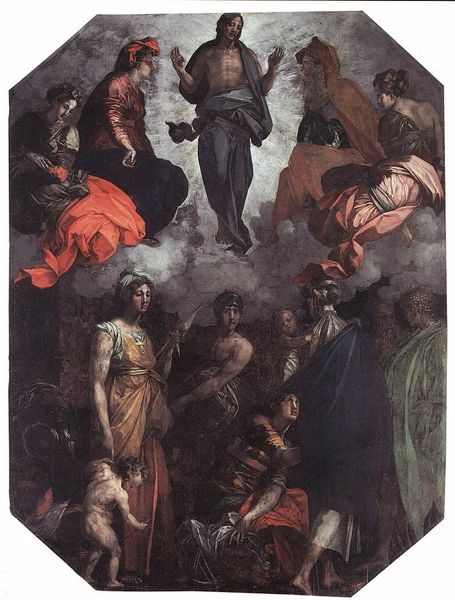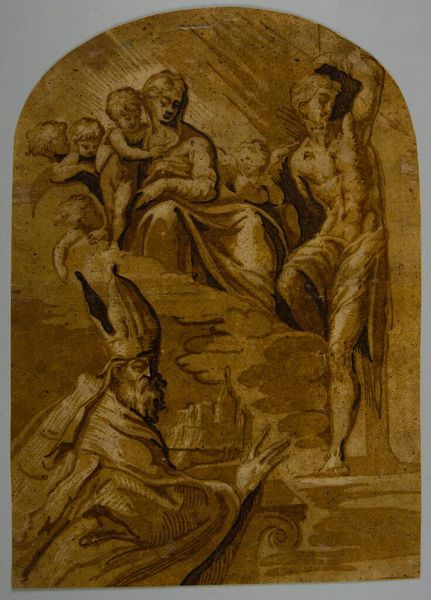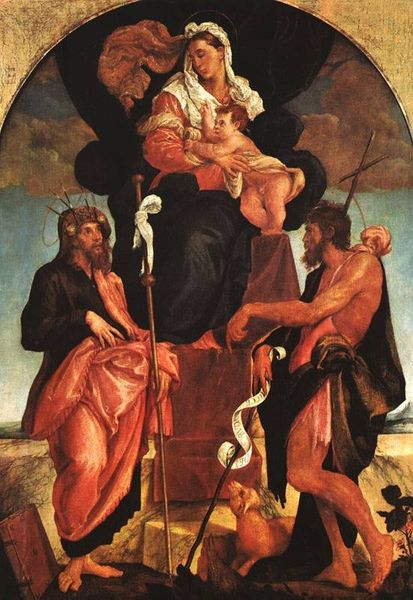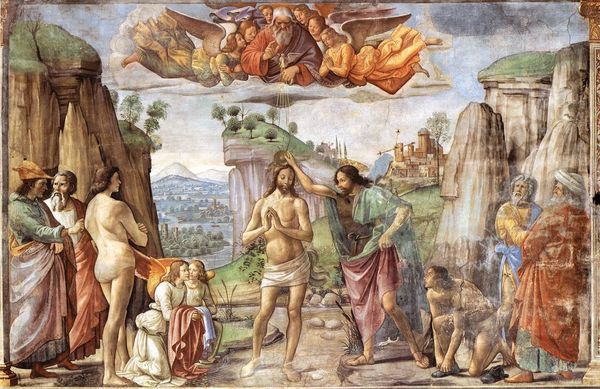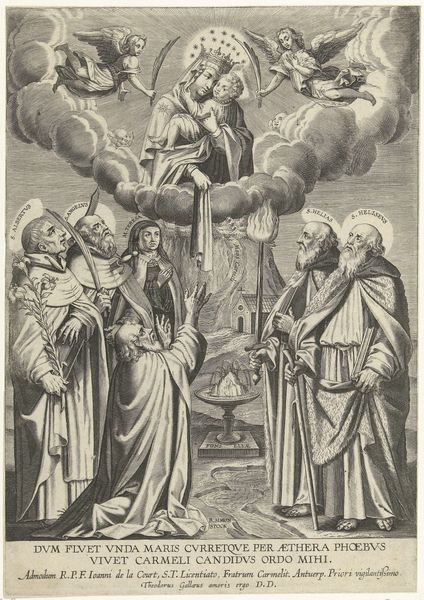
painting, fresco
#
painting
#
figuration
#
fresco
#
oil painting
#
christianity
#
history-painting
#
italian-renaissance
#
early-renaissance
Copyright: Public domain
Andrea del Castagno made this fresco painting of the Holy Trinity with St. Jerome sometime in the 15th century. Here, Castagno used the fresco technique, painting directly onto wet plaster. The pigments, ground minerals mixed with water, bind with the wall as it dries, creating a durable image. Look closely and you'll see the texture of the plaster itself, adding a tactile quality to the scene. This method wasn't just about aesthetics; it was efficient and cost-effective for large-scale decorations. The speed required for fresco demanded skill and planning. Apprentices often prepared the wall, while the master artist executed the final composition. This division of labor reflects the workshop system prevalent in Renaissance art. Consider the time and effort involved in preparing the wall, mixing pigments, and applying them with precision. The final image then becomes a testament to both artistic vision and collective labor, blurring the lines between art and craft.
Comments
No comments
Be the first to comment and join the conversation on the ultimate creative platform.
